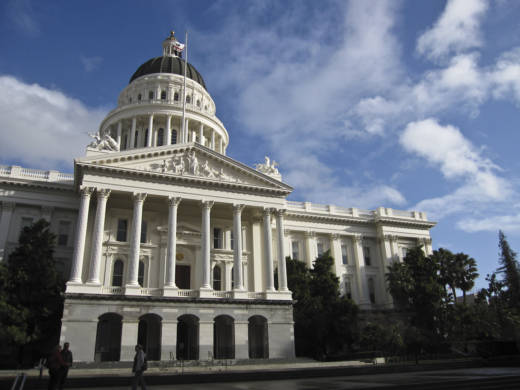Friday was the end of this year's legislative session, and lawmakers sent Gov. Jerry Brown hundreds of bills this week covering issues as wide-ranging as immigration, public safety, health care and housing.
Here's a roundup of some of the bills now sitting on Brown's desk.
(Skip to bills on housing, health care and transportation.)
Immigration
- Senate Bill 54 was the most closely watched immigration bill of the session. If signed, it will tighten limitations on law enforcement's ability to work with and communicate with federal immigration officials.
- SB 29 would bar local governments from entering into new contracts to detain immigrants facing deportation for Immigration and Customs Enforcement. Eleven municipalities already have such contracts and would be prohibited from expanding their existing contracts as they come up for renewal. It would not prevent private companies from having their own contracts with ICE, such as the Otay Mesa Detention Center in San Diego, owned and operated by CoreCivic (formerly CCA). If the bill is signed, it would also empower the state attorney general to inspect conditions for immigrant detainees in jails and private prisons in California.
- SB 257 would allow the U.S. citizen children of deported parents to continue to attend local schools.
- Assembly Bill 21 is a response to the elimination of DACA. If signed, the bill would require that California State University and community colleges have policies to ensure that undocumented students have access to financial aid, legal representation and their right to due process. It also would create a framework for how institutions of higher learning interact with ICE, such as prohibiting the disclosure of the immigration status of undocumented students, faculty and staff.
- AB 291 would prohibit landlords or property managers from disclosing, or threatening to disclose, a tenant's immigration status to any immigration authority.
- AB 450 would require employers to ask ICE for a warrant before a workplace raid, and it would require employers to give employees advance notice of ICE actions.
